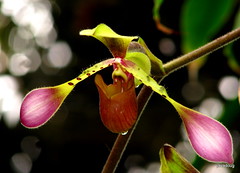 I frankly don't know for sure. I'm writing my thoughts on what it means to me. First, I've mostly heard the approximately 2 and a half minute segment of the O Fortuna, the most famous movement from Orff's cantata. Who hasn't heard this? It's so famous, that I suspect it is as recognizable as just about any other composition. I remember it was used in a television advertisement for the Marine Corps and one for the National Guard.
I frankly don't know for sure. I'm writing my thoughts on what it means to me. First, I've mostly heard the approximately 2 and a half minute segment of the O Fortuna, the most famous movement from Orff's cantata. Who hasn't heard this? It's so famous, that I suspect it is as recognizable as just about any other composition. I remember it was used in a television advertisement for the Marine Corps and one for the National Guard.I also remember it was used in many movies, the one I remember most is in the movie 'Excalibur', 1981. Others include 'Hunt for Red October', 1990, 'The Doors', 1991, and Lord of the Rings.
But that's ultimately not what it means to me. To me it isn't a thought of a collective force, but rather an individual creative spark. A song of an individual who is perhaps sought by the collective, or shunned, but operates independently, on his or her own, using their own internal force, their own power of thought, reason and sense of right and wrong, in a quest to do what's right for themselves and for all, to reject the unholy or ungodly, to embrace the adventure, to endure the torment, the rejection of the collectivist or societal norms when those norms are wrong, to surmount any odds, and to do it all with a great zest, zeal and humor presented forward and outwards, a certain unalienable smile and jovial spirit, to quench the thirst for the adventurer himself, as a kind of pirate with a gentleman's charm.
Indeed this music is compelling, the kind that drives man to passion, to movement, to action. It distinctly has that effect on me. To achieve, to write, to invent, any creative individualist act that I can think of, to type faster, to produce, without hesitation, something, I know not what, and yet it is there. But it is too short in that form, I'm awaiting the rest of it, I'm wanting more. I could listen to that segment, part of that O Fortuna movement again, and I will. But I will hear the whole cantata performed by the Pittsburgh Symphony on Saturday night, and I will write more.
I've found out since that:
http://en.wikipedia.org/wiki/Carmina_burana
From the 11th-13th Century, Carmina Burana is a collection of love and vagabond songs.
Carmina Burana, also known as the Burana Codex, is a manuscript collection found in 1803 in the Bavarian monastery of Benediktbeuern and now housed in the Bayerische Staatsbibliothek in Munich. The 119 leaves of the original collection contain 228 poems compiled by three different scribes.
Fortuna is the goddess of fortune in Roman Mythology.
http://en.wikipedia.org/wiki/Carmina_Burana_(Orff)
Carmina Burana is a scenic cantata composed by Carl Orff between 1935 and 1936. It is based on 24 of the poems found in the medieval collection Carmina Burana. Its full Latin title is Carmina Burana: Cantiones profanae cantoribus et choris cantandae comitantibus instrumentis atque imaginibus magicis ("Songs of Beuern: Secular songs for singers and choruses to be sung together with instruments and magic images.") Carmina Burana is part of Trionfi, the musical triptych that also includes the cantata Catulli Carmina and Trionfo di Afrodite. The best-known movement is "O Fortuna" that opens and closes the piece.


No comments:
Post a Comment